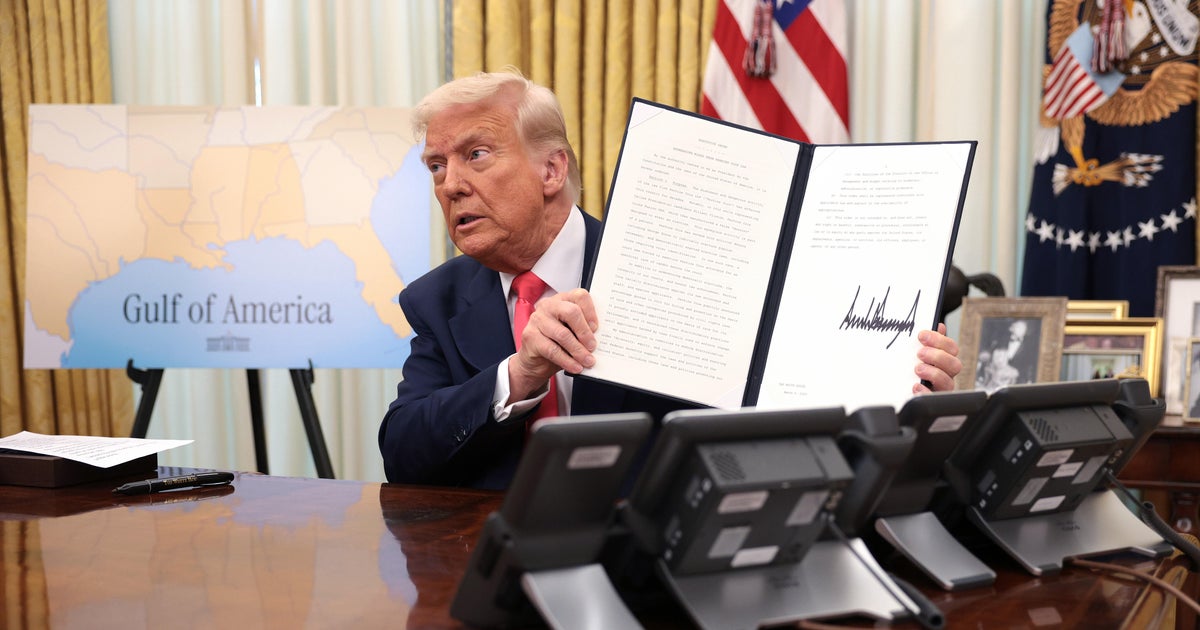10 House Democrats join suit against Trump for role in Capitol attack
Washington — A growing number of Democrats are signing onto efforts to hold former President Donald Trump accountable for his role in the January 6 assault on the U.S. Capitol through the courts, with 10 House Democrats joining an earlier suit against Mr. Trump filed by the NAACP.
The Democratic lawmakers getting behind the lawsuit were in the House gallery when the mob of Mr. Trump's supporters breached the Capitol and attempted to gain access to the chamber. The rioters broke windows, ransacked offices and sought out Democratic leaders to harm, while their surge into the building led to the evacuation of lawmakers from the House chamber to a secure location.
"There is no question that the mob's unlawful actions — their brutal, anti-Democratic attack against the very seat of our democracy — interfered with my ability to exercise my constitutional responsibility of certifying the 2020 presidential election," House Judiciary Committee Chairman Jerry Nadler said in a statement. "This violence was anything but spontaneous; it was the direct result of a conspiracy to incite a riot, instigated by President Trump, Rudolph Giuliani, the Proud Boys and the Oath Keepers."
The Democratic House members who are joining the suit are: Nadler of New York, Karen Bass of California, Steve Cohen of Tennessee, Bonnie Watson Coleman of New Jersey, Veronica Escobar of Texas, Hank Johnson of Georgia, Marcy Kaptur of Ohio, Barbara Lee of California, Maxine Waters of California and Pramila Jayapal of Washington.
Congressman Bennie Thompson, a Democrat from Mississippi, and the NAACP first filed their lawsuit in federal court in Washington in February alleging Mr. Trump, personal attorney Rudy Giuliani and two far-right extremist groups conspired to incite the attack on the Capitol.
The suit accuses the former president and Giuliani of violating the Ku Klux Klan Act, a Reconstruction-era law prohibiting two or more people from conspiring to "prevent, by force, intimidation or threat" any office-holder from performing their official duties. The lawmakers argue Mr. Trump and Giuliani, together with the Proud Boys and Oath Keepers, incited the riot in an effort to stop Congress from tallying each state's electoral votes and reaffirming President Biden's win, as required under the Constitution.
While the attack halted the proceedings on January 6 for several hours, members of the House and Senate returned after the Capitol building was secured to finish counting the electoral votes, and then-Vice President Mike Pence declared Mr. Biden the winner of the presidential contest.
Following the assault on the Capitol, which led to the deaths of one U.S. Capitol Police officer and four protesters, the House voted to impeach Mr. Trump for incitement of insurrection. But the Senate acquitted the former president of the single impeachment charge, though seven Republicans joined all Democrats in finding him guilty.
Many Republicans argued the Senate did not have the authority under the Constitution to try a former president, even though Mr. Trump was impeached while still in office. Instead, some GOP lawmakers suggested the courts were the more appropriate venue for Mr. Trump be held accountable for his conduct related to January 6.
The suit from the House Democrats and the NAACP is not the first seeking to punish Mr. Trump for his role in the Capitol attack.
Congressman Eric Swalwell, a Democrat from California, is also suing the former president, Giuliani and GOP Congressman Mo Brooks of Alabama in federal court for conspiring to interfere with lawmakers' counting of electoral votes, negligence, incitement to riot, intentional infliction of emotional distress and disorderly conduct.



